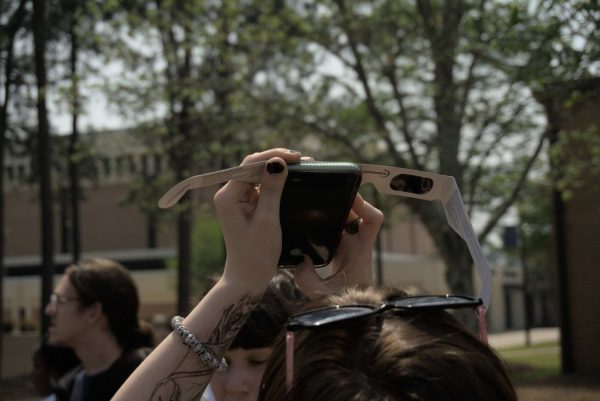Sustainability on Campus
Making eco-friendly decisions as a college student
Sustainability is concerned with the environment, economics, society, and improving the overall quality of life. According to the Environmental Protection Agency, sustainability “is to create and maintain the conditions under which humans and nature can exist in productive harmony to support present and future generations.” While students may feel it is difficult to be sustainable while living in dorms or commuting to campus, there are many ways to be environmentally conscious, including recycling, reducing gas usage, and buying local goods.
Transportation
Biking, walking, or taking public transportation to classes instead of driving is an effective way to be sustainable. Reducing the number of times you use a car during the week can reduce carbon emissions, which contribute to the deterioration of the ozone layer. Making the decision to ride the CSU shuttle to class or carpooling with friends when going out can reduce your carbon footprint, leading to a healthier environment.
Buying food
Buying locally instead of from chain stores is also a great way to be sustainable. Foods sold in chain stores are often imported from all over the world. While the supply and demand of these products may have positive effects on the economy, the consumption of these products uses large amounts of fossil fuels.
Taking a trip to uptown Columbus during the local farmer’s market, Market Days, is a great way to interact with vendors in the area. The market, which takes place every Saturday morning from March through November, begins at nine and ends at noon. Students, faculty, and staff can buy organic products such as homegrown fruits and vegetables, jams, bread, salsas, and even dog treats from local businesses.
Donating
Thrift shopping and donating reduce the amount of waste we create. Clothes and other items that we have outgrown are often thrown away and end up in landfills.
According to the Goodwill website, clothes that are not deemed resellable at donation sites are usually upcycled for other uses or sold to salvage brokers rather than thrown away. Students who buy their items secondhand can also contribute to providing more accessible clothes to those in need.
“I love thrift shopping. I like the idea of upcycling because the clothes have already been produced,” said Elizabeth Walker, a junior Theatre and Film major. “Instead of throwing them away, you can make something new out of them and give them to someone who really needs it.”
Recycling and Reusable Products
Recycling is the easiest way for college students to be sustainable. Students can use recycling bins both on and off-campus to contribute to the reduction of plastic in oceans, soil, and landfills.
According to the EPA, cardboard, paper, some batteries, and glass are all recyclable. Although certain plastics, such as plastic bags and Styrofoam, are non-recyclable, plastic that is labeled 1 through 7 on the packaging can be placed in recycling bins.
Purchasing reusable is also an effective way to ensure you are living a sustainable life. For example, using reusable metal straws instead of plastic straws or buying cloth shopping bags instead of using plastic bags are both small eco-friendly decisions.

Destinee is a senior English major with a concentration in Professional Writing. She has a passion for writing about social issues that are going on in...

Fern is a senior at CSU. Art major with a focus in painting and sculpture. Fern loves creating and having a good time.












